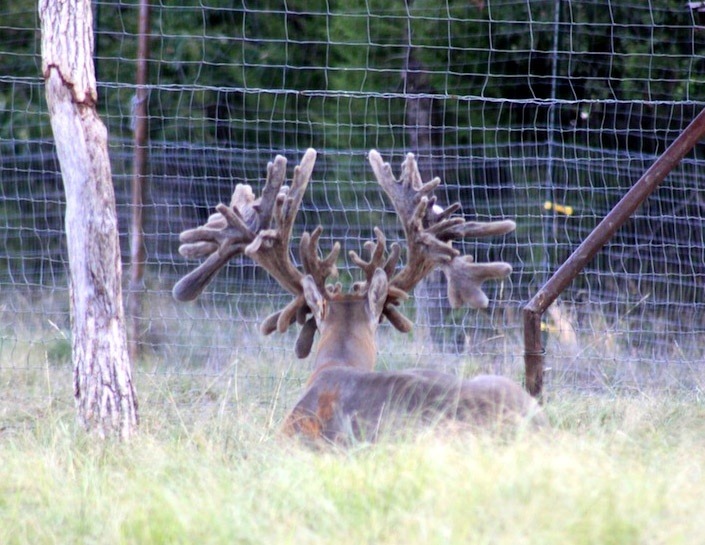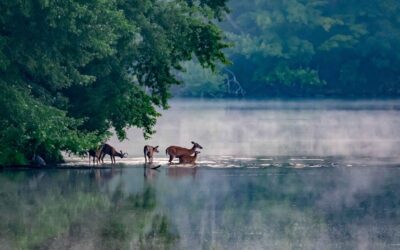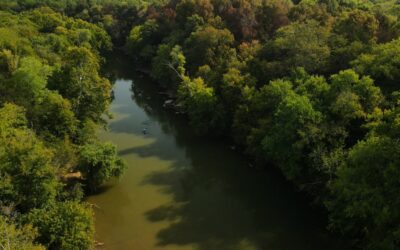One of the most dangerous pieces of legislation in modern history was first introduced in the Tennessee General Assembly’s 2011 session.
“The White-tailed Deer Breeding and Farming Act”
“The White-tailed Deer Breeding and Farming Act” would have legalized the breeding, purchase, and sale of white-tailed deer as livestock for the purpose of penned hunting.
Tennessee Wildlife Federation was proud to lead a coalition that included numerous conservation organizations, as well as veterinarians, wildlife biologists, communicable disease specialists, hunters, and wildlife lovers.
We viewed it as an unnecessary and potentially irresponsible risk to our state’s priceless natural resources.
Had it passed, the bill would have:
- Brought an industry to Tennessee which has been implicated in the spread of Chronic Wasting Disease and bovine tuberculosis in several states.
- Exposed Tennessee to the costs other state’s taxpayers and sportsmen are having to pay for managing these diseases (2011 numbers: MI-$150mil., WI-$45mil., MN-nearly $80mil.) at a time when states are broke.
- Threatened our wild and native white-tailed deer with a disease (CWD) that has been shown to kill 1 out of every 4 deer in the wild in other states, and has no live test, is 100% fatal, has no known maximum incubation period, and cannot be eradicated once in the wild herd.
- Threatened the $500-700 million annual economic engine that is Tennessee’s wild deer herd and wild deer hunting.
- Given the State Veterinarian in the Department of Agriculture the authority to depopulate wild white-tailed deer in order to protect farmed white-tailed deer without any notice, public process, or consultation with TWRA.
- Made Tennessee a potential dumping ground for CWD-infected deer by not requiring any CWD testing.
Health Concerns
Aside from the ethical concerns and public stigma surrounding captive animals that have been bred, bought, and sold to be shot in small enclosures or pens, the well-documented risk of disease associated with captive cervid populations represented a potentially devastating threat to our abundant natural herds of white-tailed deer.
Federal and state agencies, universities, and private organizations across the nation have spent hundreds of millions of dollars studying and fighting Chronic Wasting Disease, bovine tuberculosis, and other fatal diseases that have been discovered in captive cervids and in wild deer and elk populations near captive cervid facilities.
Hunting, photographing, and watching wildlife in Tennessee provide hundreds of millions of dollars annually to Tennessee’s economy.
Our white-tailed deer herd – nearly extinct a half-century ago – is as healthy as it’s ever been in recorded history. The restoration of our native wild elk population has been a nationally celebrated success.
And that’s why Tennessee Wildlife Federation took the issue so seriously. We gathered objective data and testified in legislative committee hearings, and we also rallied our friends and supporters across the state to voice their opinions on the issue prior to key votes.
Thousands of Tennesseans answered the call, and the bill was ultimately removed from consideration by the sponsor. An effort to revive the bill in 2012 was quashed as well after the Federation again generated an outpouring of opposition to the concept of privatizing our public resources.




